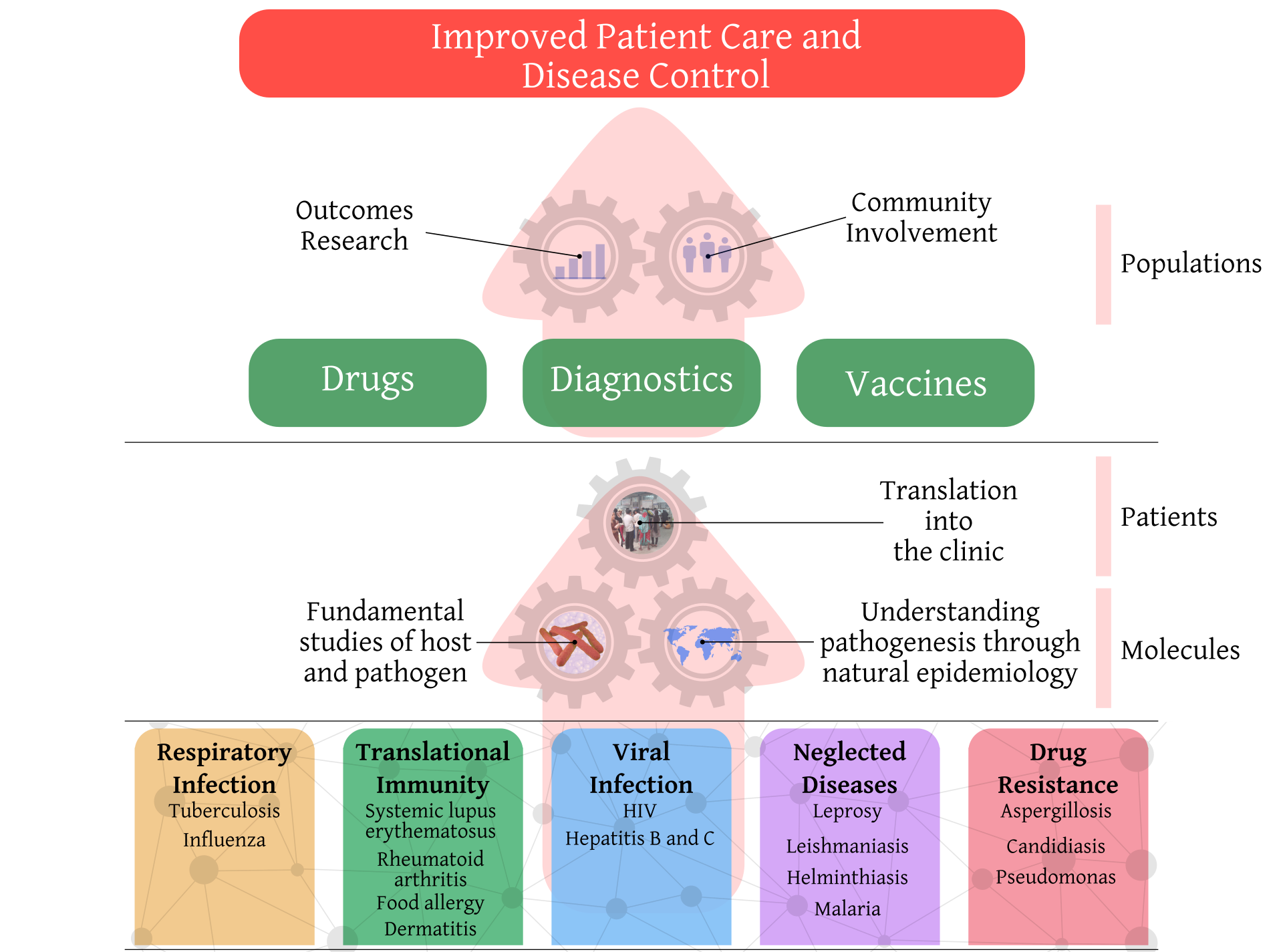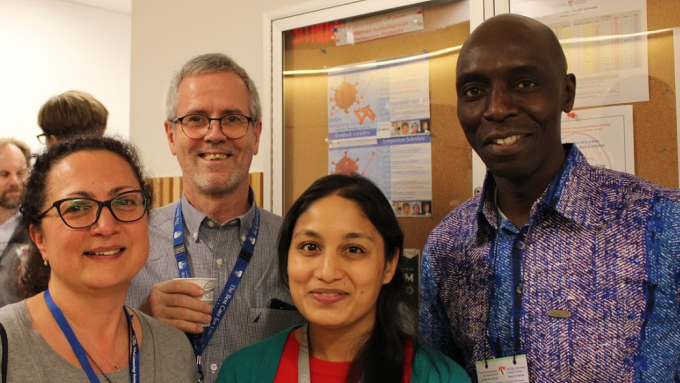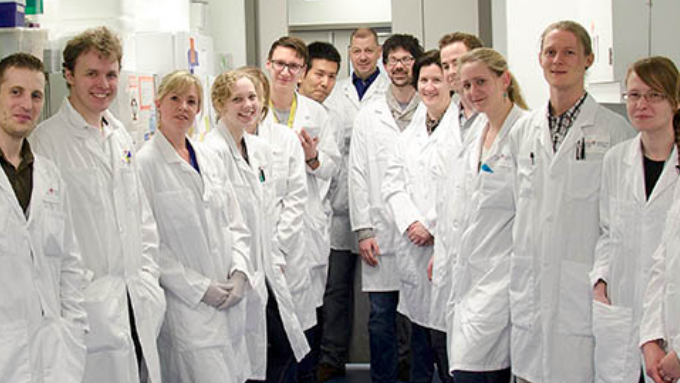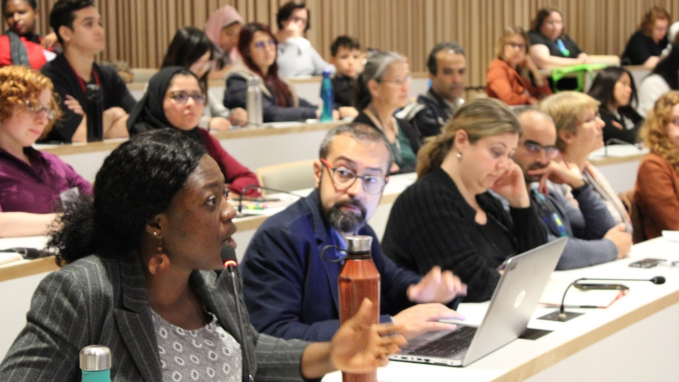
The vision for the Infectious Diseases and Immunity in Global Health (IDIGH) Program is to (i) act as catalyst for innovative research programs, to establish discovery pipelines in select diseases, and to enhance research competitiveness of program members; (ii) to train the next generation of scientists in biomedical, clinical, and health outcome research; and (iii) to make program members aware and facilitate the exploitation of the shift of research funding that health research will experience in the short- and mid-term. To do so, IDIGH will integrate the existing but fragmented strength in infectious diseases, immunity and global health at the RI-MUHC into work groups that will implement a strong translational focus.
The specific translational topics are diagnostics: to enhance the effectiveness and reduce the cost of detection of infections, and to apply the same principles towards the detection of patients at highest risk of suffering severe consequences of infectious and immune disorders; therapeutics and prevention: to discover novel therapeutic and preventive strategies for the treatment of infections and immune disorders; and epidemiology and health outcomes: to enhance preventive options, instruct policy, and guide research outcomes with the aim of minimizing and eradicating targeted diseases. The program will focus on 5 major research areas based on societal need, economic opportunity and expertise of IDIGH members: (i) respiratory infections (tuberculosis and influenza), (ii) viral infections (HIV, Hepatitis B and C virus), (iii) allergy, auto-immunity and immune regulation in health and disease (systemic lupus erythematosus, rheumatoid arthritis, food allergy, dermatitis), (iv) drug resistance (aspergillosis, candidiasis, pseudomonas), and (v) global and neglected infectious diseases (malaria, leprosy, leishmaniasis, helminthiasis). Basic and applied research in these five disease areas will be structured around the specific translational topics of IDIGH with the goal of creating a fully integrated translational unit (basic, clinic, outcome research) for each research area.
The implementation strategy of the program vision will involve 3 complementary approaches that will be applied to selected disease areas, but that will retain flexibility to address new emerging opportunities: (a) establish work groups of laboratories and corresponding central resources (clinical cohorts, animal models, biosafety facilities, immune phenotyping etc.) that will promote sharing of expertise among like-minded researchers from the IDIGH program (and collaborating groups) and provide instant access to the latest technologies; (b) develop in association with industry partners targeted funding programs to leverage expertise and to support research in strategic areas of scientific and commercial interest; (c) build an interdisciplinary training environment for trainees in the laboratories of IDIGH investigators. This aim will be pursued in collaboration with McGill university departments.










